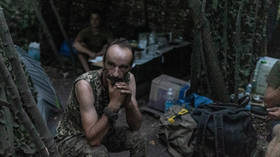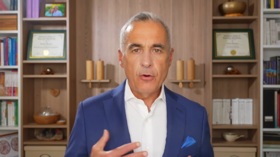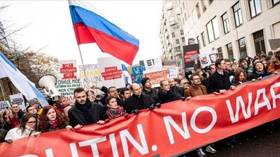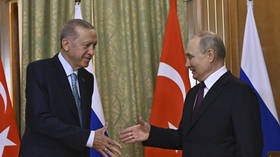‘And give us this day our daily Evil’
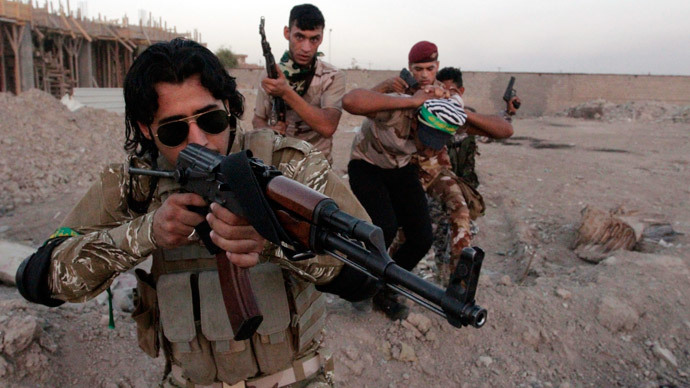
The prayer of the news’ lords has been granted: we finally have the ISIS.
It is a little confusing, because it was a good friend of ours when Assad was the Evil, not to mention Tehran, but sure it is a great Evil. We are discovering (again) the extremist face of Sunni Islam, and the cruelest one.
Ed Husain, Council on Foreign Relations’ member and adviser to the Blair’s foundation, explains in his OpEd in the New York Times online:
"Let’s be clear: Al-Qaeda, the Islamic State in Iraq and Syria, Boko Haram, the Shabab and others are all violent Sunni Salafi groupings. For five decades, Saudi Arabia has been the official sponsor of Sunni Salafism across the globe."
It is not difficult to agree with this statement, even if the "let's be clear," in the beginning and the "five decades" in the end produce a weird short circuit. Should it be clear after five decades? What have we done meanwhile?
All media boys are shouting against the global danger represented by ISIS (at this point unrealistically inflated: you have not to forget that Salafi extremism is shared by a minority in the Islamic world). But when the Jihadist Foreign Legion began to fight in Syria, not too long ago, with the indirect support of the Gulf States, Turkey and the benevolent distraction of America and Europe at least, were not all the cards already on the table? The pure souls wonder why the alarm is sounding only now.
Maybe we had to wait, that after the Grand Guignol of dozens of Syrian soldiers beheaded, they used the same serial killer ritualism with a Western Journalist?
Only a year ago, August 21, Kerry was swearing that it was Assad launching the gas over the heads of Ghouta’s rebels, preparing to bomb Damascus. Seymour Hersh, fishing in his usual American secret services’ pond, showed that Washington had no certainty about who fired the toxic missiles but surely knew that the rebels had the sarin either. Assad had to be the villain and the Salafites, however not these funny guys, were "our bastards". One year later, the mainstream media is discovering that the absolute evil is becoming the lesser evil, and our friend’s our enemy. It is impossible to have a religion in these days.
As Patrick Cockburn, the Independent Middle East special correspondent, puts it in his last book “The Jihadis Return: ISIS and the New Sunni Uprising”, the ISIS is not the random outcome of a horde of Bedouin extremists, aided by a handful of former Saddam’s officers.

The Caliphate is a precise political project with wealthy foreign donors and international recruitment. Certain external circumstances boosted the business, especially the short-sightedness of the Shiite rulers of Baghdad that have pushed many moderate Sunnis into the arms of the Salafites. ISIS (they prefer indeed to call themselves IS, Al-Dawla al-Islamiya, the Islamic State) was not born to carry out terrorist attacks against the West or killing the "crusaders,” it was born primarily as a military tool against Shiites countries, against Iran above all in the long term.
Beyond any possible connections, ISIS was in fact objectively functional to the Middle East politics of the Gulf Countries and the Turkey. Whoever pulls the strings will have to deal with an extremely ideological and unpredictable asset. Ask the Pakistanis about the Taliban.
The same Saudis are likely to suffer a backlash from the waves of Wahhabi zeal which so far have been spread to contain the Shia Crescent. This was clearly explained by Fouad Ibrahim Lebanese on Al Akhbar online, in a long opinion titled: Why Isis is a threat to Saudi Arabia.
"The House of Saud fought the religious regimes that emerged after the Arab Spring. They allocated a huge budget to overthrow the Muslim Brotherhood rule in Egypt in order to prevent the emergence of a model of Islamic rule that competes with and undermines the legitimacy of the Saudi regime. But there appeared from within the Wahhabi arena people who carry a competing project and who have inflammatory ideas, religious justifications, military and human power that make them a potential alternative in a divided environment. This was revealed by the calls made by young people on social networking sites to the prince of the faithful of the Islamic State to come to the Hijaz and liberate Mecca from the House of Saud.”
In his 2003 book about Jihad Giles Kepel explained that the Saudi goal was to "reach out and spread Wahhabism across the Muslim world … to ‘Wahhabize’ Islam, thereby reducing the “multitude of voices within the religion” to a “single creed.”
A hard-line preaching Islamic Jacobinism that hates any compromise and is damned to build through destruction. Not only have the “infidels” to be killed but also the other Muslims, who do not conform to its narrow religious views: from the Sufis up to the Shiites.
But the bloodlust of the purity’s guardians never goes out, sooner or later the Caliphate (if it will endure its success) will begin to look at the lavish Riyadh’s sheiks in the way the first Wahhabites looked at the eighteenth century noble Egyptians and Ottomans who were traveling through Arabia on their way to Mecca: debauched, lovers of art and music, hard smokers of tobacco and hashish. Not Muslims at all.
The statements, views and opinions expressed in this column are solely those of the author and do not necessarily represent those of RT.
The statements, views and opinions expressed in this column are solely those of the author and do not necessarily represent those of RT.




